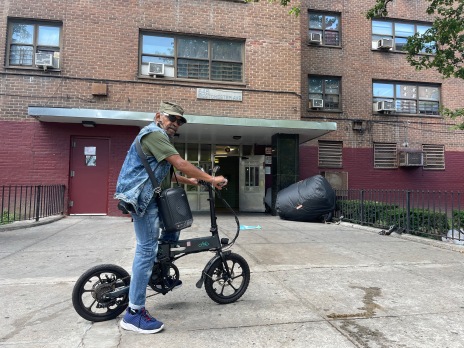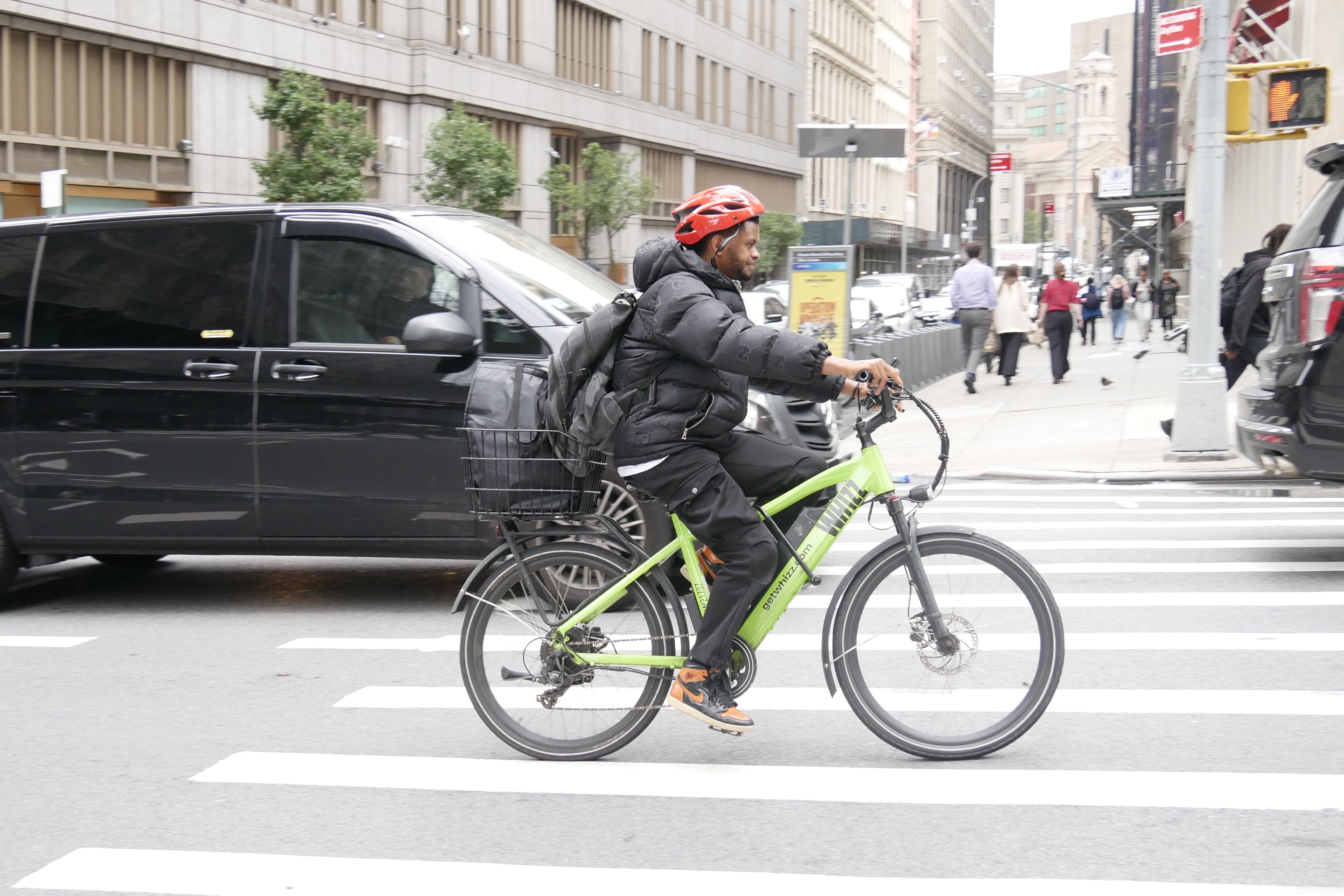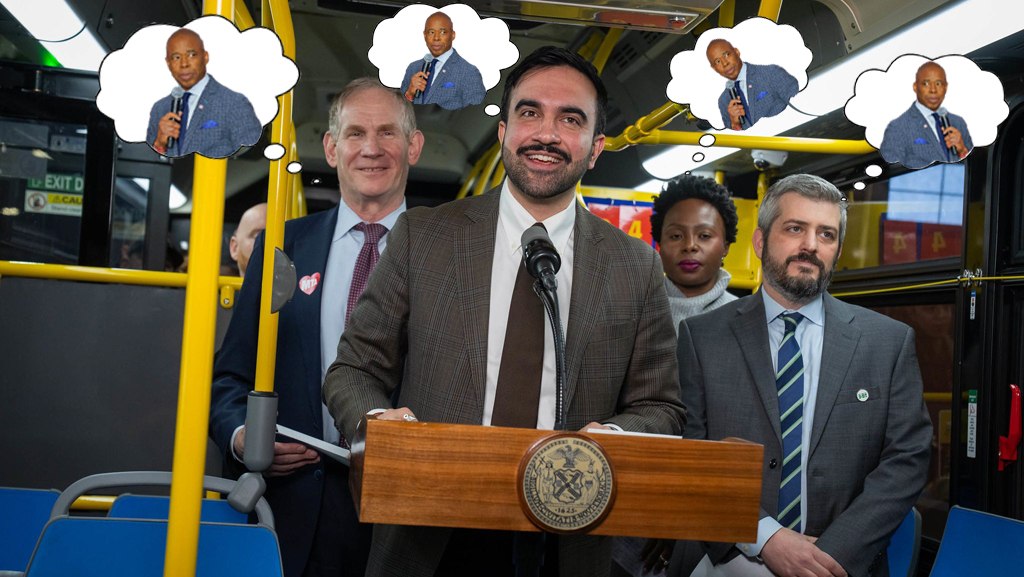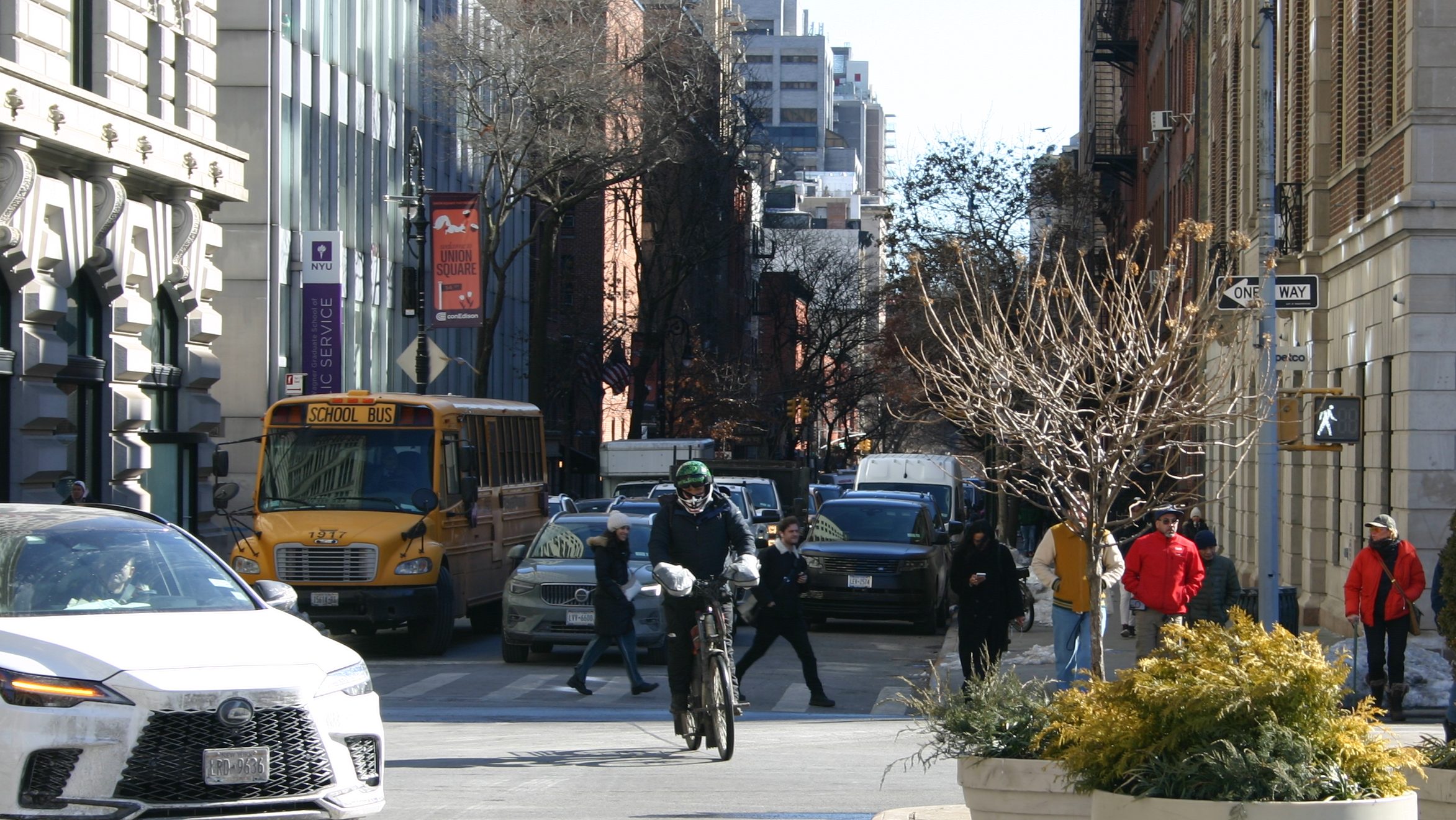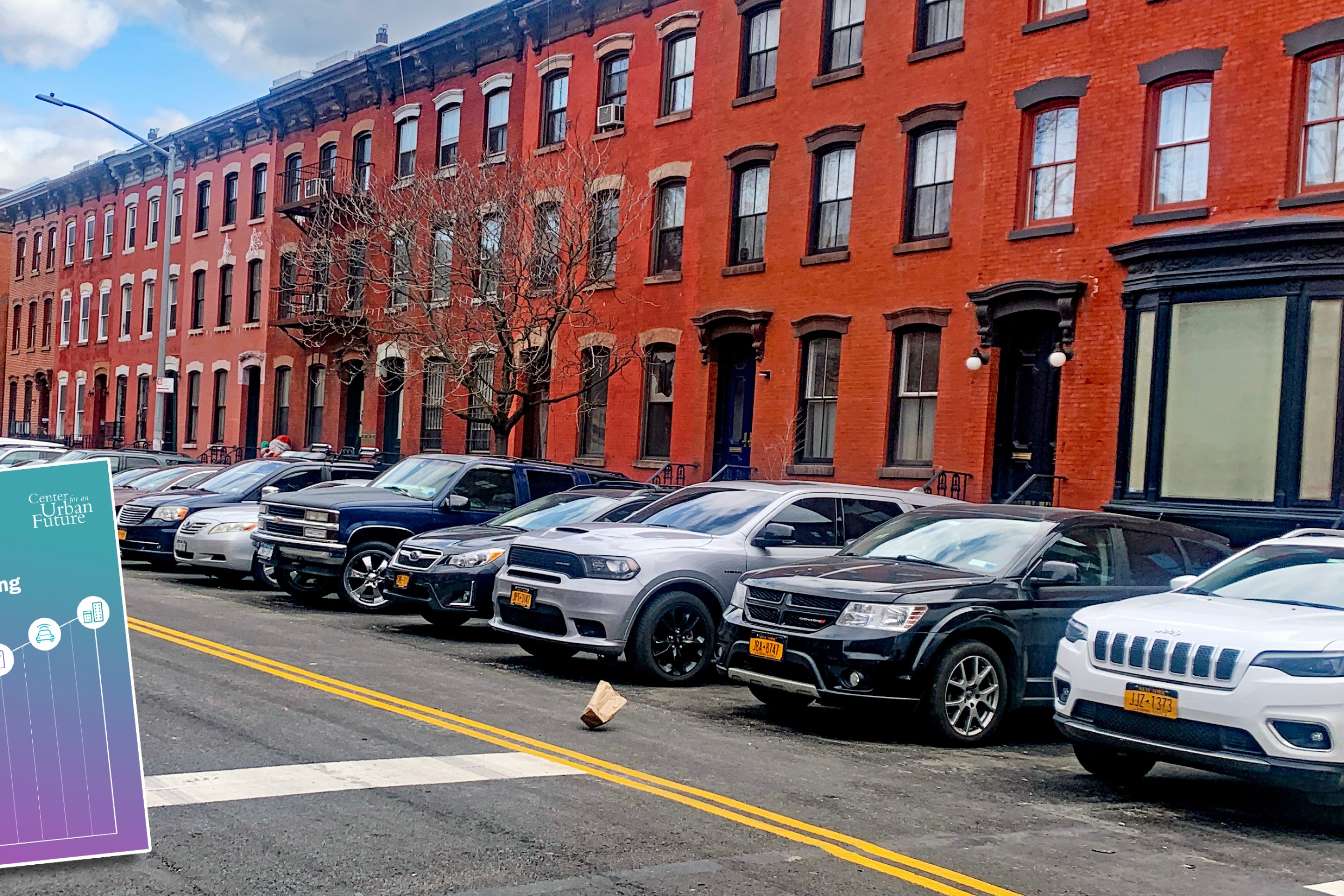Advocates and elected officials are pushing alternative solutions to the city's controversial proposed ban on e-bikes anywhere on New York City Housing Authority property, warning that such a change would worsen the city’s homelessness crisis by forcing residents to choose between a roof over their head and a job, and still not solve the problem of lithium-ion batteries catching fire.
On Monday, Council Member Gale Brewer (D-Upper West Side) said she is drafting legislation to push back against the proposed policy, with provisions that would ban second-hand or refurbished batteries, which have a higher risk of catching fire; beef up Fire Department education and outreach efforts; and demand that delivery apps such as Uber and DoorDash pay for the associated costs of better and safer batteries. She also floated the idea of installing charging stations in NYCHA-owned parking lots and called on Congress to come up with safety standards and regulations for such devices.
“I’m worried about other fires," Brewer said. "People should not sell second-hand or refurbished batteries because that's where the problem is. People will continue to charge anyway if there’s no other alternative, they gotta get to work. NYCHA has parking lots, outdoor parking lots that seems to be the best location to put a charging station. If we can do Citi Bike e-bikes can’t we also do charging stations for 65,000 delivery people?"
A spokesperson for DoorDash said the company “stand(s) with policymakers who have rightly called for urgent attention to this important issue and made clear that an outright ban that could take away economic opportunities is not the correct approach to these complex challenges."
“While we need to minimize unsafe storage and charging practices, we can also start thinking about how the city can upgrade its infrastructure to include safe and secure charging and storage spaces for e-bikes — much like it already provides for cars,” the spokesperson added.
A spokesperson for Uber said the company is also in talks with NYCHA and “other stakeholders to find a solution that makes storage and charging of electric bicycles safer.”
Back in May, the head of the San Francisco-based delivery app wrote a letter to Secretary of Transportation Pete Buttigieg asking him to “expedite the establishment of charging stations” and “prioritize funding for public infrastructure that supports the safe and efficient charging of e-bike batteries.” (Some labor activists have pointed out that Uber and DoorDash make their livings by using delivery workers as gig workers, without full benefits, including proper tools for working — externalizing those costs to the workers, who are among the lowest-paid in the city.)
And for her part, Brewer says she would also look into a city-sponsored rebate-type program that would allow people to trade out their cheaper batteries for proper ones. But she couldn't yet provide more details on how exactly that would work or who would pay for it.
Typically, safe batteries come with an Underwriters Laboratories (UL) label, meaning they comply with nationally recognized safety standards. But those "certified" batteries, especially ones that are big enough to power e-bikes, are expensive, sometimes more than $1,000, according to multiple people familiar with the business. And in order for the batteries to have enough juice to carry delivery workers all across the city day and night, workers often leave them charging overnight, sometimes several at a time. That's a problem for sub-standard batteries.
“It is very common that they buy cheaper versions of the battery because they cannot afford a certified battery — and they leave the battery charging overnight,” Hildalyn Colón Hernández, director of Policy and Strategic Partnerships of Los Deliveristas/Workers Justice Project, previously told Streetsblog. “The nature of the work is extremely costly, they’re going to try to figure out the best way to survive.”
The alternative proposals come after NYCHA last month quietly issued a proposed policy change, stating that “residents and their guests may not keep or charge e-bikes or e-bike batteries in apartments or in common areas of NYCHA buildings” — after a string of deadly infernos, the latest of which on Aug. 3 killed a 5-year-old girl and a 36-year-old woman in Harlem. This year, the number of fires caused by lithium-ion batteries is expected to double from 2021, according to the fire department.
But just prohibiting the e-bikes is poor public policy, said Council Member Alexa Avilés, a Democrat who represents Sunset Park and its high population of delivery workers.
“This is really a citywide issue and I hope our city thinks comprehensively about the battery situation, how they’re manufactured and imported to its disposal, which are all really important things for us to think about," said Avilés. "These bikes are not going away and we certainly don't want to create a situation where we’re ignoring that they exist — ignoring both the hazards and the opportunity they provide.”
Still, Cynthia Tibbs, the tenant association president for West Side Urban Renewal Brownstones, says she has seen tenants thread extension cords through the window of their apartments down onto the street below to juice up their e-bikes.
“People don't understand the fire risk they're taking. I’ve seen extension cords out windows in pouring rain,” she said.
But as dangerous as that is, she still doesn’t see the solution as prohibiting the bikes. People will continue to do it, and risk eviction, and it isn’t just at NYCHA buildings where they pose a risk.
“We don't want the ban because at the end of the day, people need to make a living,” said Tibbs.
Tibbs also floated the idea of using infrastructure similar to LinkNYC, which provides free WiFi and public charging stations for smartphones, or the charging stations that already exist for electric vehicles, for which users pay $2.50 per hour between 6 am and 9 pm, and then $1 per hour overnight, according to DOT.
She says NYCHA could easily create a secure charging hub on its property in the space of no more than four or five cars.
“There has to be a safe medium where it works for everyone. If we have things to park bikes, and Link NYC to charge our phones, why can’t we come up with some kind of charging port? As far as where to store the bikes, NYCHA has outdoor parking, parking garages. I understand they’re utilizing every space they have but it needs to be a give and take, take four or five parking spaces and build a shed and secure it so people can store stuff safely.”
Hernández, who opposes the proposed NYCHA policy, says she and her colleagues have been in talks for years with the city and ConEd, and more recently with their newfound advocate, Sen. Chuck Schumer, to build out safe charging stations for delivery workers. A new hub in Williamsburg is finally in the works in the coming months, she said.
“We are about to secure funding to make it a reality, looking at a location in Williamsburg,” said Hernández. “No ban is good for anything, that’s been proven over and over historically that approach has not worked. We have met with NYCHA a few times, we have an upcoming third meeting. We cannot resolve it in just one conversation, it’s a very complicated matter, with a lot of nuance.”
Schumer declined to comment on the Williamsburg charging hub specifically, but said in a statement to Streetsblog that he has been working with Mayor Adams and the deliveristas to provide and help fund better, safer infrastructure.
“I’ve worked closely with Los Deliveristas Unidos for months to finalize details on delivering better infrastructure for the thousands of delivery workers on our streets,” said Schumer. “Millions of dollars in funding from the Bipartisan Infrastructure Law will be put to use building safer bike lanes and charging stations, which keep delivery workers, pedestrians and drivers safe, and I am collaborating with Mayor Adams on furthering new projects that will support delivery workers.”
And Citi Bike, which is also independently in talks with ConEd and the Department of Transportation to figure out a way to connect its docking stations to the city’s electrical grid in order to allow its e-bikes to charge, said it would follow the city's lead in working with deliveristas to make public charging stations possible. Citi Bike would not provide a cost estimate to electrify the curb in order to facilitate charging stations.
"There's a huge public works opportunity to electrify the curb and cities all over the world are thinking about co-locating various types of vehicle charging. We would be happy to include Citi Bike considerations in these conversations, following the City of New York's lead," said Caroline Samponaro, VP of Transit, Bike and Scooter Policy at Lyft.
City Hall declined to comment.
The public has until Sept. 6 to comment on the proposed NYCHA policy by submitting comments by e-mail here, or via snail mail to:
NYCHA — Lease Clause Changes
P.O. Box 19202
Long Island City, NY 11101-9202
